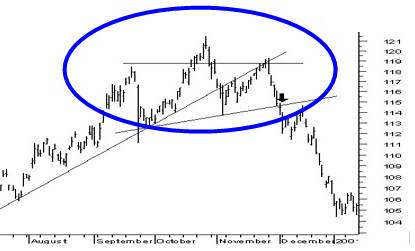
Table of Contents
FEMA Rules for NRI Investors: A Comprehensive Guide
The Foreign Exchange Management Act (FEMA), enacted in 1999, is a pivotal regulation governing foreign exchange transactions in India. For Non-Resident Indians (NRIs), understanding FEMA is crucial to navigating investment opportunities in India while ensuring compliance with legal and regulatory frameworks.

This article delves into FEMA rules, focusing on their implications for NRI investors, and offers practical insights into how to effectively manage investments in India.
What is FEMA?
FEMA was introduced to consolidate and amend the laws relating to foreign exchange with the objective of facilitating external trade and payments, promoting the orderly development of the foreign exchange Market in India, and managing foreign exchange to ensure that it serves the needs of the country. The act aims to balance the interests of foreign investors while protecting the Indian Economy.
Importance of FEMA for NRIs
For NRIs, FEMA is significant because it governs how they can invest in India. Non-compliance can lead to penalties, and understanding FEMA rules ensures that NRIs can invest without legal repercussions. Additionally, these regulations provide clarity on repatriation, taxation, and the types of investments permissible for NRIs.
Key FEMA Rules Affecting NRI Investments
Investment Accounts: NRE vs. NRO
NRIs can invest in India through two primary types of accounts: Non-Resident External (NRE) accounts and Non-Resident Ordinary (NRO) accounts.
NRE Accounts: These accounts are primarily for Income earned outside India and allow full repatriation of both principal and interest. Earnings in NRE accounts are tax-free in India, making them an attractive option for NRIs looking to invest in Mutual Funds, equities, and other financial instruments.
NRO Accounts: These accounts are for income earned in India (e.g., rent, dividends). While NRO accounts allow NRIs to manage their income from Indian sources, repatriation is limited. NRIs can repatriate up to $1 million per financial year from NRO accounts, but only after paying the applicable Taxes.
Talk to our investment specialist
Investment Vehicles for NRIs
Under FEMA, NRIs can invest in various financial instruments:
Mutual Funds: NRIs can invest in both equity and debt mutual fund. However, investments must be made through NRE or NRO accounts, and the Mutual Fund Houses may require specific documentation, such as a PAN Card and proof of NRI status.
Stock Market: NRIs are allowed to invest in Indian equities through the Foreign Portfolio Investment (FPI) route. They must register as an FPI with the Securities and Exchange Board of India (SEBI) and comply with the Know Your Customer (KYC) norms.
Real Estate: NRIs can purchase residential properties in India. However, they must comply with FEMA regulations, which specify that NRIs cannot buy agricultural Land or plantation property unless they meet specific criteria. Additionally, properties must be financed through NRE or NRO accounts.
Repatriation of Funds
FEMA allows NRIs to repatriate funds earned from investments, subject to certain conditions.
NRE Accounts: Funds in NRE accounts can be freely repatriated outside India without any restrictions. This includes the principal amount and interest earned.
NRO Accounts: The repatriation of funds from NRO accounts is limited. NRIs can repatriate up to $1 million per financial year, which includes all income earned from the NRO account. However, this is subject to taxation in India.
Tax Implications for NRI Investments
Taxation is a crucial aspect for NRIs Investing in India. FEMA regulations intersect with the income tax Act, which outlines how different types of income earned by NRIs are taxed:
Short-Term Capital Gains (STCG): For assets held for less than 12 months, short-term Capital gains from the sale of Equity Mutual Funds and stocks are taxed at a Flat rate of 15%.
Long-Term Capital Gains (LTCG): For assets held for more than 12 months, long-term capital gains exceeding ₹1 lakh are taxed at 10%. This threshold of ₹1 lakh applies to the total gains from the sale of all listed equity shares and equity-oriented mutual funds in a financial year.
Tax Deducted at Source (TDS): NRIs face TDS on dividend income, interest from NRO accounts, and capital gains. The rates vary, and NRIs must file tax returns in India to claim refunds if TDS exceeds their Tax Liability.
Double Taxation Avoidance Agreement (DTAA): Many countries have DTAA with India, which helps NRIs avoid paying taxes in both jurisdictions. NRIs should consult tax professionals to understand how to leverage DTAA benefits effectively.
Compliance and Reporting Requirements
NRIs must comply with specific reporting requirements under FEMA:
Form 15CA and 15CB: For remittances exceeding ₹5 lakh, NRIs must submit Form 15CA (a self-declaration) and Form 15CB (a certificate from a Chartered Accountant). These forms provide details of the transaction and ensure that all applicable taxes are paid.
Annual Return on Foreign Assets: NRIs are required to report their foreign assets in their annual tax returns in India.
Penalties for Non-Compliance
Non-compliance with FEMA rules can lead to penalties. Offenders may face fines up to three times the amount involved in the contravention or ₹2 lakh, whichever is higher. Continuous non-compliance may result in imprisonment for up to five years.
Conclusion
Understanding FEMA rules is essential for NRIs to navigate the complexities of investing in India effectively. Compliance ensures that NRIs can leverage the vast investment opportunities available while minimizing legal risks. It is advisable for NRIs to seek professional guidance from financial advisors and legal experts to make informed investment decisions and stay updated with any changes in regulations. By adhering to FEMA guidelines, NRIs can build a robust investment portfolio that supports their Financial goals, whether it's funding their children's education, purchasing property, or planning for retirement.
All efforts have been made to ensure the information provided here is accurate. However, no guarantees are made regarding correctness of data. Please verify with scheme information document before making any investment.












